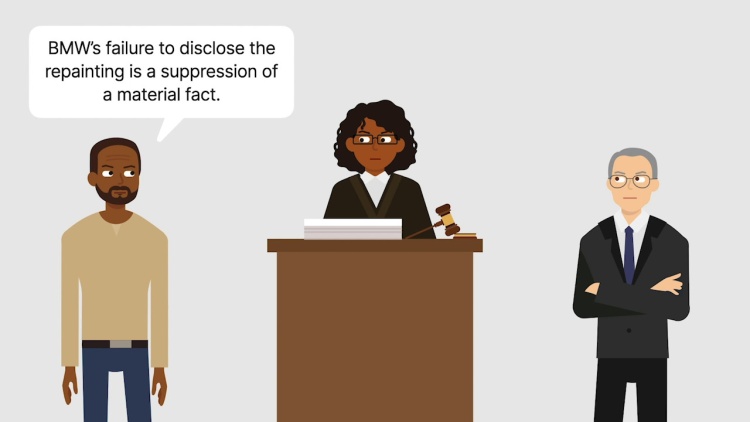BMW of North America, Inc. v. Gore
United States Supreme Court
517 U.S. 559 (1996)
- Written by Angela Patrick, JD
Facts
An Alabama dealer for BMW of North America (BMW) (defendant) sold Ira Gore (plaintiff) what he thought was a brand-new car for $40,000. Nine months later, Gore took the car into a shop to embellish the car’s paint. The shop noticed that the car had been repainted. Gore sued BMW in Alabama state court for fraud. At trial, BMW admitted that it had a nationwide policy of repairing and selling cars damaged during the manufacturing or transportation process. If the repair costs were more than 3 percent of the car’s retail value, BMW sold the repaired car as used. If the repair costs were less than 3 percent of the car’s retail value, BMW sold the repaired car as new without disclosing the repairs. BMW had repainted Gore’s car for 1.5 percent of the car’s retail value and, therefore, sold it as new. The jury awarded Gore $4,000 in compensatory or actual damages for his car’s diminished value. Gore also asked for punitive damages to persuade BMW to change its nationwide policy. BMW had sold nearly 1,000 repainted cars as new. The jury determined that BMW had committed gross fraud nationwide and imposed punitive damages of $4 million. The Alabama Supreme Court reduced the award to $2 million, basing it solely on BMW’s conduct within Alabama. The United States Supreme Court granted certiorari.
Rule of Law
Issue
Holding and Reasoning (Stevens, J.)
Concurrence (Breyer, J.)
Dissent (Scalia, J.)
Dissent (Ginsburg, J.)
What to do next…
Here's why 907,000 law students have relied on our case briefs:
- Written by law professors and practitioners, not other law students. 47,100 briefs, keyed to 996 casebooks. Top-notch customer support.
- The right amount of information, includes the facts, issues, rule of law, holding and reasoning, and any concurrences and dissents.
- Access in your classes, works on your mobile and tablet. Massive library of related video lessons and high quality multiple-choice questions.
- Easy to use, uniform format for every case brief. Written in plain English, not in legalese. Our briefs summarize and simplify; they don’t just repeat the court’s language.





